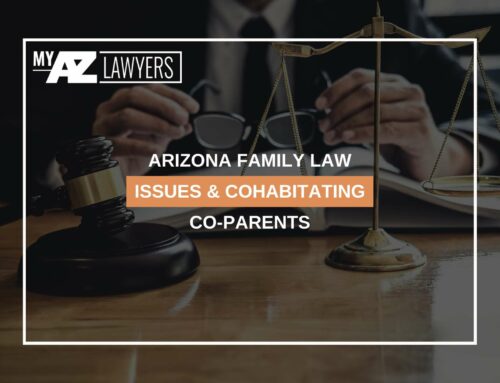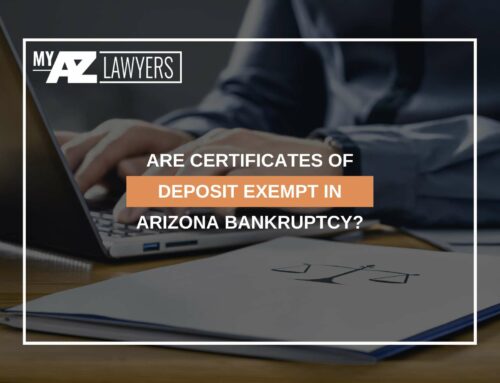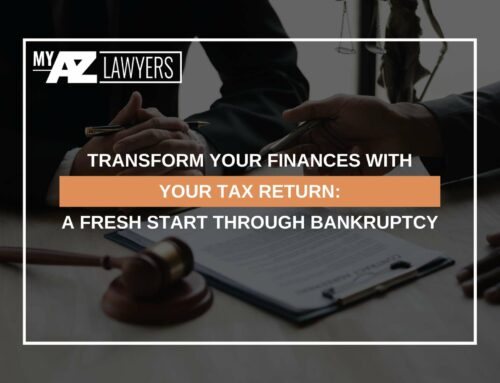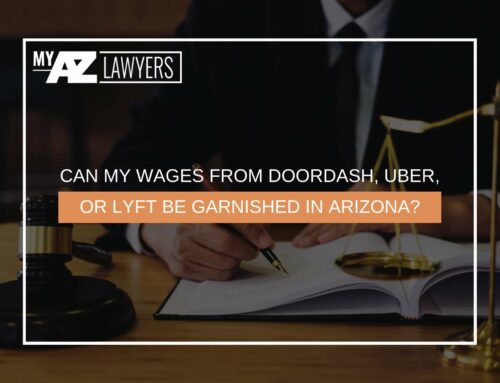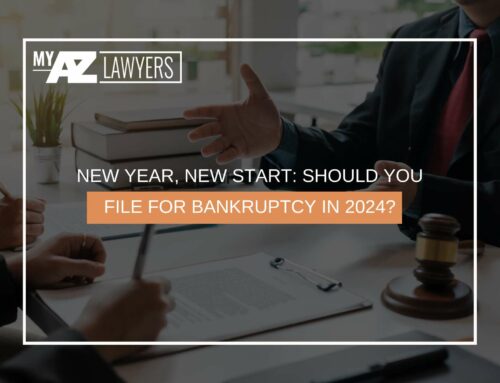Holiday Expenses & Bankruptcy
With the holiday season just around the corner, many Arizona families may be expected to shoulder the accompanying costs using credit cards and other lines of credit. But with inflation increasing the cost of living, and the market declining with that trend projected to continue into the future, this could create a pressure cooker situation of debt. Many clients come to us after the holiday season regretful of overspending on gifts, meals, flights, and decorations. Bankruptcy might be able to help, but it does come with some limitations. To learn more about the possible considerations and issues that could arise from a post-holiday bankruptcy filing, call 480-448-9800 to schedule your free consultation with an experienced member of our bankruptcy team.
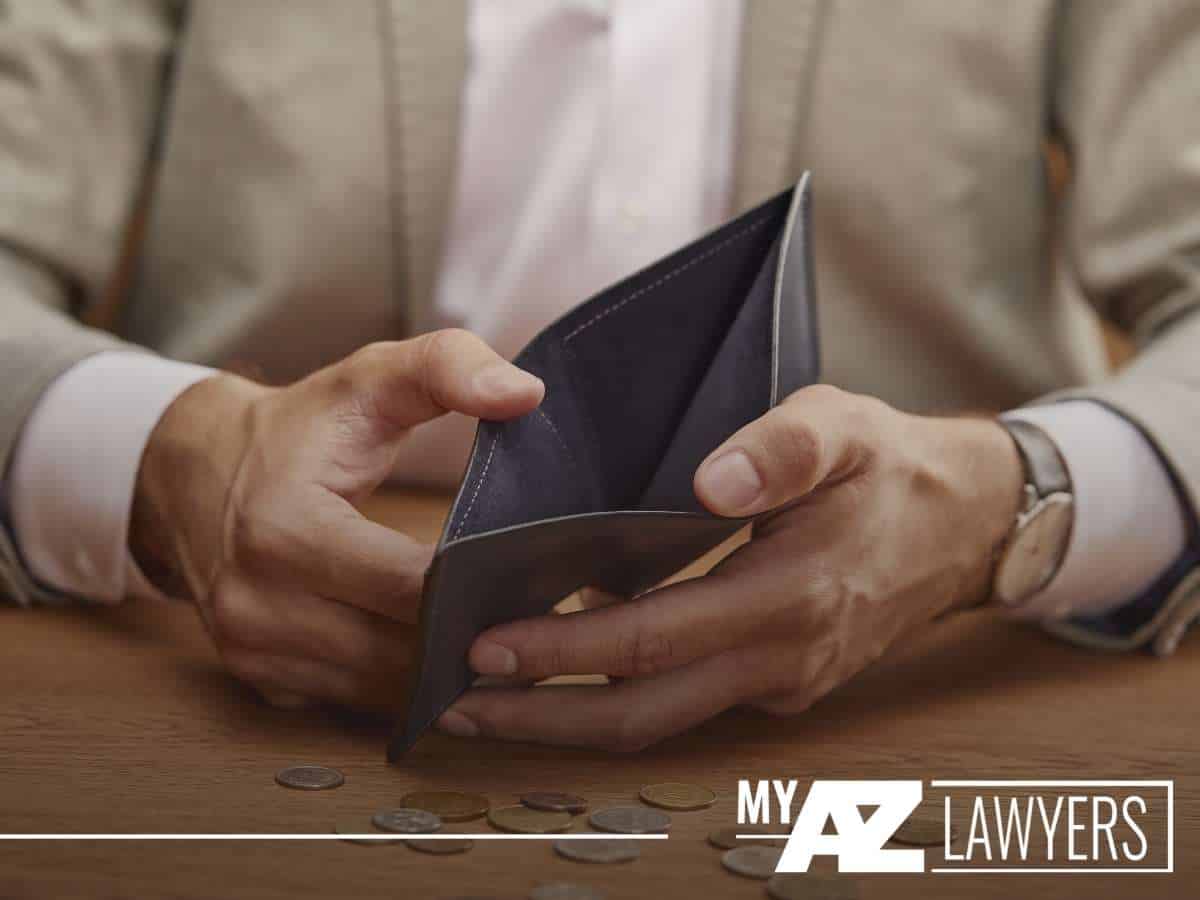
Chapter 7 or Chapter 13 Bankruptcy
Regardless of your reason for filing bankruptcy, the first step is to determine whether you should file Chapter 7 or Chapter 13. The chapter you file could also impact how any debts you have remaining from the holidays are treated. You may be eligible for one, both, or in rare situations, neither.
Chapter 7 bankruptcy clears unsecured nonpriority debts, the most common being medical bills, credit cards, and personal loans. If you’re overwhelmed with credit card debt from the holidays, this probably sounds great. But there are limitations to discharging credit card debt with bankruptcy- see more below. Additionally, you need to make sure you are eligible to file for Chapter 7 bankruptcy before you start making plans to discharge debts with it. It is only available to those whose income is below the state median or who pass the Means Test. If the debtor doesn’t meet these income limitations, has property they want to save from repossession, or other circumstances are present, Chapter 13 may be a better solution to holiday-induced debt.
Chapter 13 bankruptcy is known as a wage earner’s bankruptcy because it arranges all of the debtor’s disposable income into a reorganized debt payment plan that lasts three or five years. This gives someone who has fallen behind on a secured debt, like a mortgage or a car payment, more time to catch up while protected from repossession. It is also an option for those whose income is too high for Chapter 7. Talk to a Phoenix bankruptcy attorney to learn more about the unique benefits offered by Chapter 13 bankruptcy.
Credit Card Limitations in Bankruptcy
If there were no limitations on discharging credit card debt in bankruptcy, many people would open up as many credit cards as they could and max them out immediately before filing. To prevent this, there are credit card debt discharge limitations meant to prevent debtors from intentionally opening lines of credit with the plan to discharge them in bankruptcy. These limitations are set forth by 11 U.S.C. § 523. Luxury purchases totaling $800 or more in the 90 days before your filing won’t be included in the discharge. The same goes for cash advances of $1,100 or more in the 70 days before filing bankruptcy. Essentially, you can’t spend thousands of dollars on holiday gifts and festivities and discharge it a couple of months later in bankruptcy.
Your creditor will need to object to their debts being discharged if they believe you have violated the bankruptcy guidelines. Your defenses against their objections will be heard at an adversary proceeding. You may want to consider hiring a Peoria bankruptcy attorney for this hearing if you haven’t retained one for your case already. If your creditor(s) is successful at the adversary proceeding, their debt will remain untouched by your bankruptcy discharge.
Luxury vs. Necessity
An argument can almost always be made that a purchase was a necessity rather than a luxury. Things like gas and groceries for regular activities are necessities, while things like flights and hotels aren’t considered necessities by the court. Some holiday gifts could be considered necessities- for example, giving your child off-brand shoes they need for sports is more necessary than buying your child the newest and trendiest Nikes. Likewise, gifting your spouse something like a new blender or piece of furniture would be more necessary than an expensive watch or jewelry.
What If I Purchased Gifts on a Payment Plan?
For some larger gifts, you may have the option to pay for the item in installments after receiving the item. Common examples include furniture, appliances, cell phones, and other technological devices. If you file for Chapter 13 bankruptcy, these will be secured debts that must be paid off in your payment plan. The plus side is that it means you get to keep financed assets in a Chapter 13 bankruptcy. However, you could run into issues if you financed holiday presents and file bankruptcy before paying off their balances. Some creditors may let it slide, especially if you were close to paying off the debt. But sometimes, the lender will repossess the asset, which can be awkward and inconvenient.
Can I Ever Get Another Credit Card After Bankruptcy?
If credit cards are a major part of your financial strategy, filing for bankruptcy comes with serious drawbacks. You will lose all of your credit cards when your bankruptcy petition is filed. You will not be able to use credit cards for the duration of your bankruptcy. A Chapter 7 bankruptcy usually lasts 3 to 6 months, and a Chapter 13 bankruptcy lasts 3 or 5 years. You will need to apply for new credit cards after your case has been discharged (or dismissed).
After your bankruptcy is discharged, you likely won’t be short on offers to open new lines of credit. Many lenders send out offers to bankruptcy debtors once their cases have been discharged. But just because your mailbox will be full of the credit card offers after your case has been discharged doesn’t necessarily mean that they will be good ones. Make sure to read all of the fine print on any offers you receive for lines of credit after bankruptcy. They could have unfavorable terms like high-interest rates, annual fees, and more. Opening up new credit cards with poor terms and accruing balances on them will land you right back in the situation you were in before bankruptcy. However, making timely payments on new credit cards can also help improve your credit score after your case has been discharged. But credit cards aren’t the only option available to post-bankruptcy debtors looking to increase their credit scores. To learn about more steps you can take to rebuild credit after bankruptcy, call our firm for your free consultation at 480-448-9800.
Contact Our Arizona Law Team For Your Ideal Bankruptcy Results
Bankruptcy doesn’t have to be the stressful and embarrassing experience that it is often portrayed to be. The guidance of a compassionate and skillful bankruptcy firm can help you feel confident knowing you have made the best choice for your situation, and you have the control to create a positive credit history post-bankruptcy. Many people come to us simply for information about bankruptcy, assuming they don’t have the financial resources to afford an attorney. At My AZ Lawyers, our professional bankruptcy team prides itself on offering flexible, affordable payment options for Arizona families struggling with debt. To learn more, as well as to see if you qualify for our zero-down filing option, call 480-448-9800.
Arizona Offices:
Mesa Location:
1731 West Baseline Rd., Suite #100
Mesa, AZ 85202
Office: (480) 448-9800
Email: info@myazlawyers.com
Website: https://myazlawyers.com/
Phoenix Location:
343 West Roosevelt, Suite #100
Phoenix, AZ 85003
Office: (602) 609-7000
Glendale Location:
20325 N 51st Avenue Suite #134, Building 5
Glendale, AZ 85308
Office: (602) 509-0955
Tucson Location:
2 East Congress St., Suite #900-6A
Tucson, AZ 85701
Office: (520) 441-1450
Avondale Location:
12725 W. Indian School Rd., Ste E, #101
Avondale, AZ 85392
Office: (623) 469-6603


